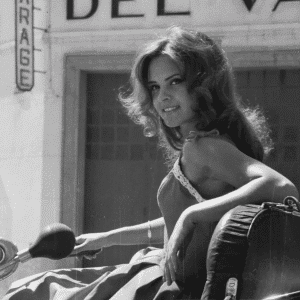Few actresses in Hollywood history have embodied both ethereal beauty and emotional depth the way Mia Farrow has. With her delicate features, signature pixie cut, and hauntingly expressive eyes, she became one of cinema’s most unforgettable faces. Her role in Rosemary’s Baby not only cemented her place in film history but also defined an era of psychological horror. Yet, beyond the screen, Mia Farrow’s life has unfolded like a script filled with love, heartbreak, controversy, and extraordinary courage. Now at 80, she remains as fascinating as ever—proof that some stars never lose their light, no matter how turbulent the storm.
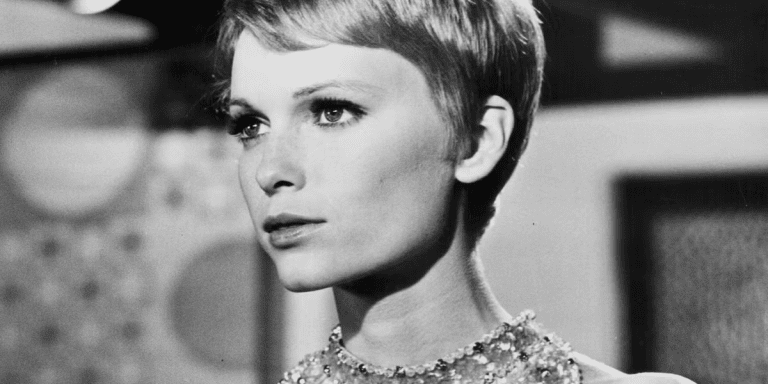
Early Life and Hollywood Beginnings
Mia Farrow was born on February 9, 1945, in Los Angeles, California, into a family steeped in show business. Her mother, Maureen O’Sullivan, was the Irish-born actress who famously portrayed Jane in the Tarzan films, while her father, John Farrow, was an Academy Award–winning director. From the very beginning, it seemed Hollywood was in her DNA.
Growing up in such a dynamic household exposed Mia to both the allure and the darker side of fame. She made her acting debut on stage before landing her breakout television role in Peyton Place (1964–1966). As Allison MacKenzie, she captured America’s attention with her angelic appearance and quiet emotional intensity. But while Peyton Place made her a household name, Mia Farrow’s destiny was about to take an even more chilling turn.
The Breakthrough: Rosemary’s Baby and the Making of a Legend
Video: Through the Lens: The Ever-Evolving Beauty of Mia Farrow
In 1968, Mia Farrow starred in Roman Polanski’s Rosemary’s Baby, a film that would change the horror genre forever. Her portrayal of Rosemary Woodhouse—a young woman slowly realizing the terrifying truth about her pregnancy—was hauntingly real. Her wide-eyed vulnerability, framed by that now-iconic pixie haircut, created a sense of fear and empathy rarely seen in cinema.
The movie became an instant classic, and Mia’s performance was hailed as a masterclass in psychological tension. Critics praised her for bringing authenticity and depth to a role that demanded both innocence and terror. Rosemary’s Baby turned her into an international sensation, but behind the glittering success, her personal life was unraveling.
The Sinatra Years: Love, Glamour, and Heartbreak
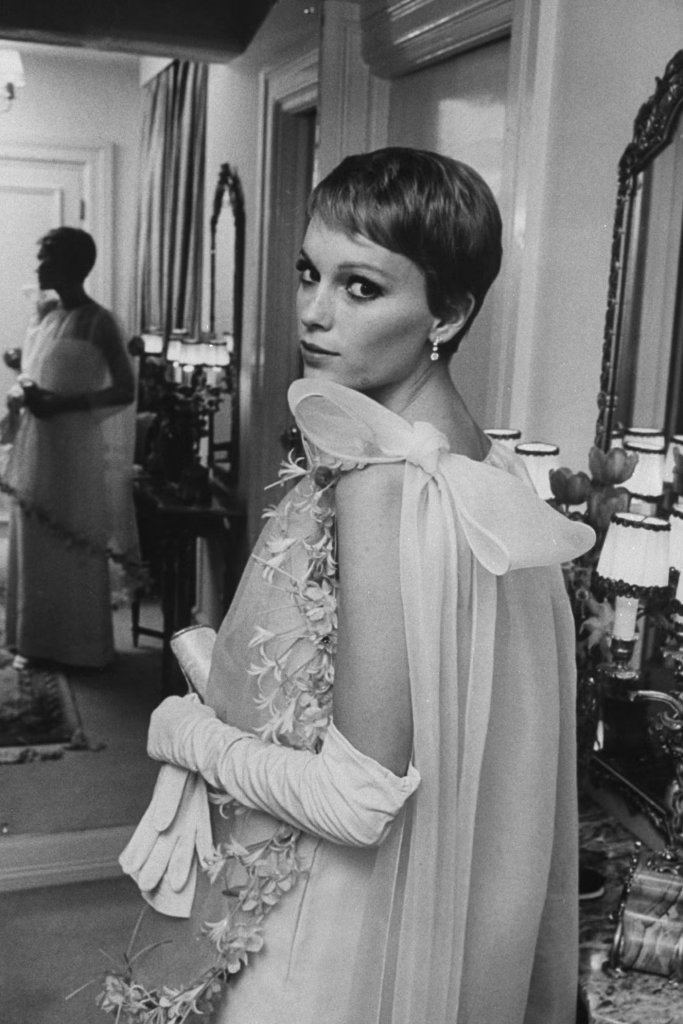
Two years before her Rosemary’s Baby triumph, Mia Farrow married music legend Frank Sinatra. She was just 21, while he was 50—a difference that fascinated and scandalized the public. Their romance was glamorous but volatile, blending Old Hollywood charm with youthful rebellion.
Sinatra reportedly adored her, yet the union soon faced tension. When Mia accepted the lead role in Rosemary’s Baby, Sinatra demanded she abandon the project to focus on their marriage. When she refused, he ended their relationship abruptly—famously serving her divorce papers on set.
Though brief, their marriage left an indelible mark on both stars. Sinatra would later admit that Mia was one of the great loves of his life, and the two remained close friends for years.
A Career of Depth and a Life of Drama
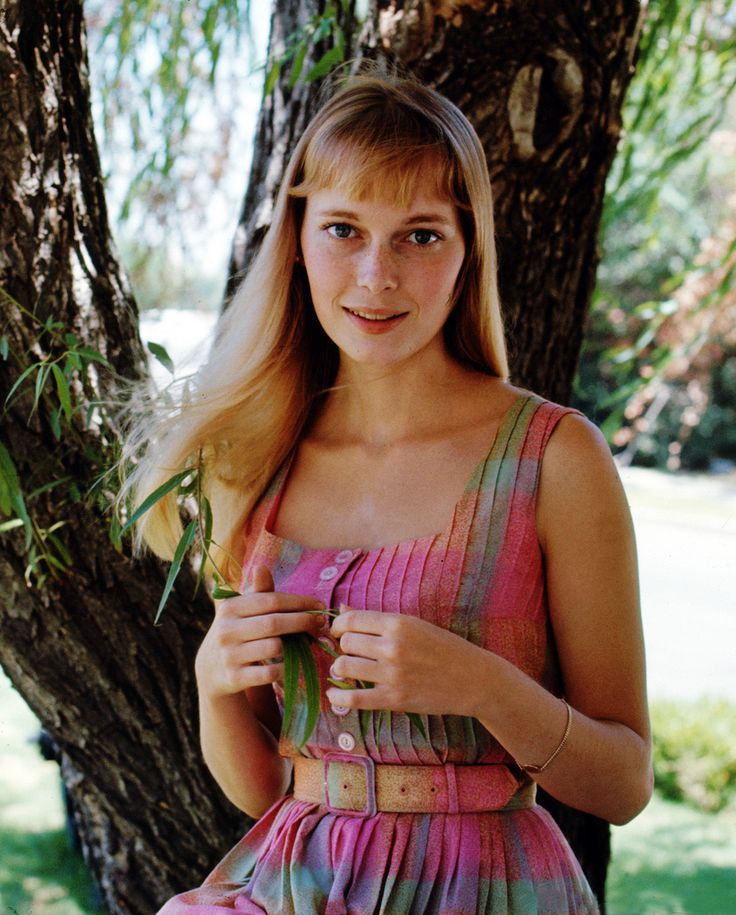
After her split from Sinatra, Mia Farrow continued to carve her path as an actress of substance. She starred in several acclaimed films, including John and Mary (1969), The Great Gatsby (1974), and Death on the Nile (1978). But the 1980s brought both professional success and one of Hollywood’s most infamous personal scandals.
Her relationship with director Woody Allen produced a creative partnership that yielded several celebrated films, such as Hannah and Her Sisters (1986) and The Purple Rose of Cairo (1985). Their collaborations showcased her versatility and emotional intelligence as an actress. Yet, the romance that inspired such art would end in public betrayal.
Video: Peyton Place – Mia Farrow haircut (February 15, 1966)
In 1992, Farrow discovered that Allen had entered a relationship with her adopted daughter, Soon-Yi Previn. The revelation sent shockwaves through Hollywood and led to a deeply divisive custody battle that still resonates decades later. While Allen continued to work, Farrow chose a quieter life, focusing on her children and humanitarian efforts.
Motherhood and Humanitarian Work
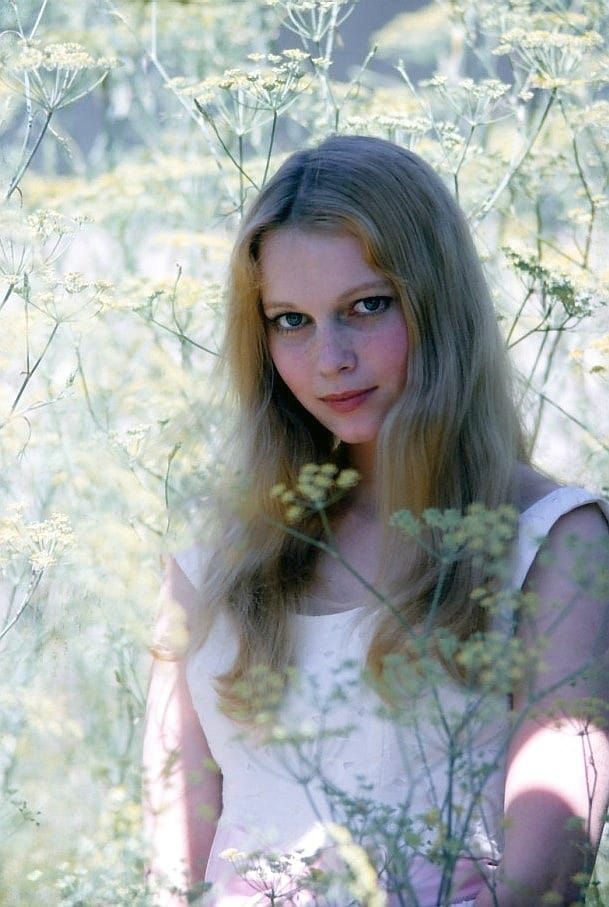
If there is one role that defines Mia Farrow beyond Hollywood, it is that of a mother. Over the years, she has raised a large, diverse family—four biological children and ten adopted ones. Many of her children came from war-torn regions or challenging circumstances, reflecting Mia’s deep compassion and moral conviction.
Her family life has not been without hardship. She has endured profound personal losses and public scrutiny, yet her resilience remains unwavering. Through it all, she has continued to advocate for children’s welfare, using her fame to spotlight humanitarian crises around the world.
As a UNICEF Goodwill Ambassador, Mia Farrow has traveled extensively to raise awareness about human rights abuses, especially in conflict zones like Darfur and the Central African Republic. Her courage in confronting global injustices proves that her strength extends far beyond the silver screen.
Embracing Grace and Purpose at 80
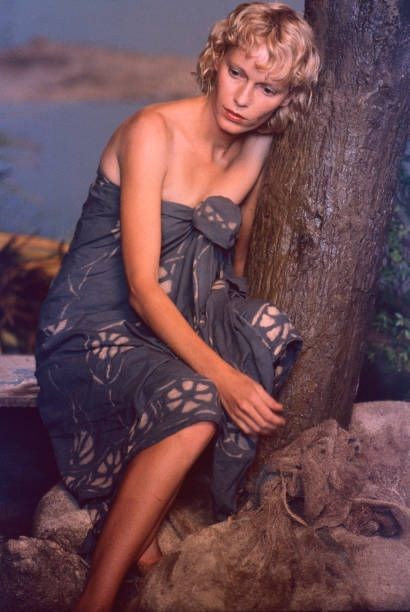
Today, at 80 years old, Mia Farrow lives a life defined not by fame, but by purpose. She continues to act occasionally, though her passion now lies primarily in activism and family. Her physical beauty—once described as angelic—has evolved into something more profound: a reflection of wisdom, dignity, and inner peace.
She still keeps her signature short haircut, a symbol of individuality and timeless style. Her soft smile and calm demeanor suggest a woman who has made peace with her past while remaining unafraid to confront the truth. Unlike many in Hollywood, she has chosen authenticity over perfection, aging naturally and gracefully.
A Legacy Written in Strength and Artistry
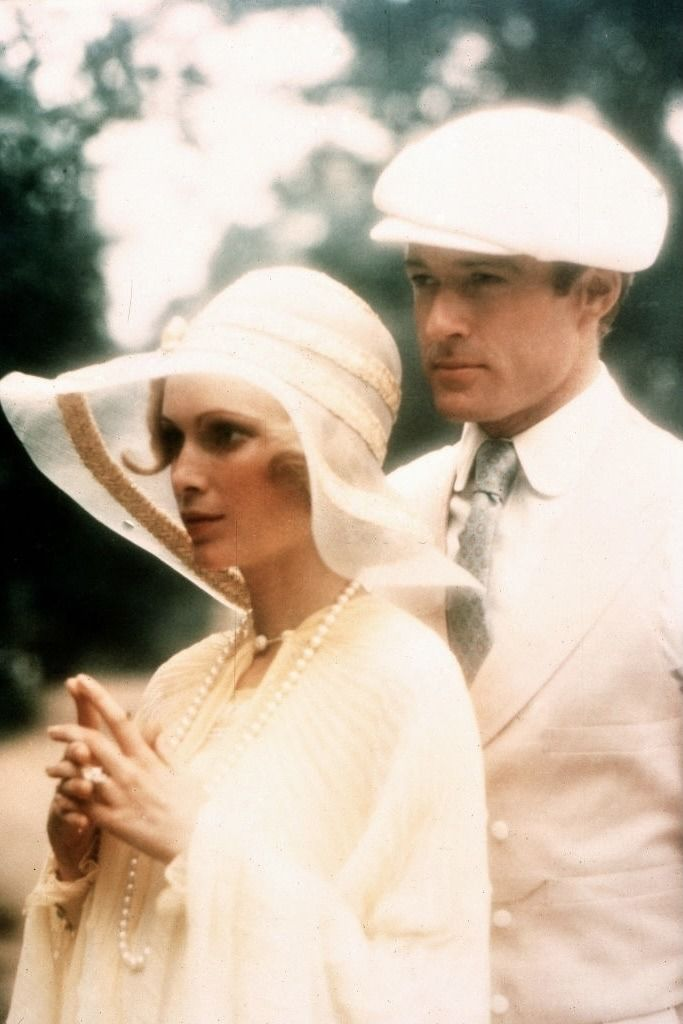
Mia Farrow’s legacy is complex, powerful, and enduring. She is an artist who turned vulnerability into strength and scandal into resilience. From her unforgettable performance in Rosemary’s Baby to her tireless humanitarian work, she has lived a life of meaning, courage, and conviction.
Her story reminds us that greatness isn’t defined by fame—it’s measured by integrity, empathy, and the courage to keep going when the spotlight fades.
Conclusion: The Woman Behind the Legend
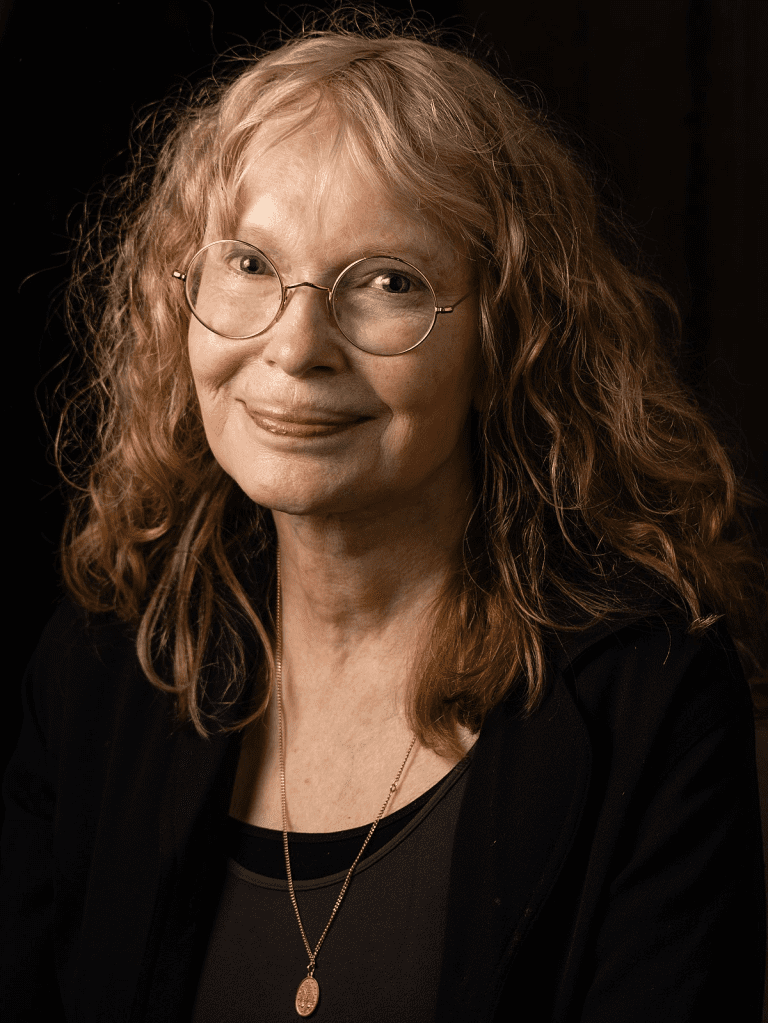
Mia Farrow’s journey is a rare blend of beauty, brilliance, and bravery. She has faced the highest peaks of stardom and the darkest valleys of betrayal, yet she has never lost her grace.
At 80, she remains an emblem of strength—a woman who has loved deeply, suffered greatly, and risen above it all. Her eyes, once wide with cinematic fear, now reflect wisdom and peace. Mia Farrow is more than a Hollywood icon; she is a survivor, a humanitarian, and a reminder that true elegance lies not in perfection, but in perseverance.
Her story continues to inspire—and her legacy will forever echo through the halls of cinema and compassion alike

